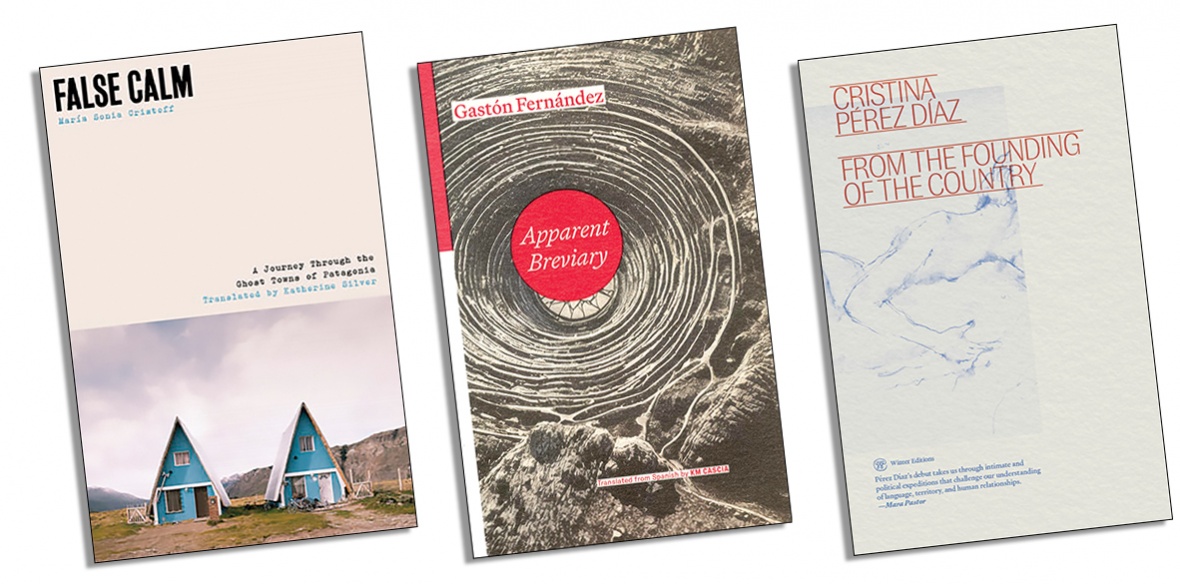This is the last article you can read this month
You can read more article this month
You can read more articles this month
Sorry your limit is up for this month
Reset on:
Please help support the Morning Star by subscribing here
PATAGONIA, a vast region located at the southern extremity of South America, presents an array of otherworldly landscapes, encompassing the Andes mountain range, crystalline lakes and fjords, temperate forests, glaciers, and boundless deserts and steppes.
Maria Sonia Cristoff’s work, False Calm (Daunt Books, £10.99), seeks to challenge the idyllic perception of Patagonia by recounting the stories of several ghost towns that were negatively affected by the decline of the oil boom.
This non-fiction book serves as both a travelogue and a personal essay, guiding the author to the peripheries of Patagonia. It may resonate with admirers of Bruce Chatwin, Susan Sontag, or WG Sebald, as each of the 10 essays intricately intertwines the stories of individuals and communities abandoned by the hydrocarbon industry, enriched with anecdotes, vignettes, and ethereal descriptions expertly translated by Katherine Silver.
“I had at my disposal an infinite number of hours to roam around towns whose perimeters can be walked in a single hour. I sat on street corners and watched dogs amble by. I wholly surrendered to the daze generated by the excess of light or wind or silence. There were days I felt like I was in a scene from a science fiction movie into which I had been sucked by some powerful and not wholly defined force. I saw things, many things: ghostly does not imply empty,” writes Cristoff as an introduction to this fascinating book.
One of my favourite essays is the one presented in Chapter Five, where the author explores the Arab migration to Patagonia in the 20th century, interspersed with personal and communal stories, newspaper clippings and headlines from that era, and many wonderful anecdotes.
This book will help you discover the other side of Patagonia. It is written with precision and passion about the place and its people — a must-read.
I had never read or known the work of Peruvian poet and writer Gaston Fernandez, who moved from his hometown of Lima to Belgium in 1969, where he lived for the rest of his life. Although he taught art history for most of his career, he was the author of four books on aesthetics and one travelogue, all written in French.
Apparent Breviary (World Poetry Books, £17), lovingly translated from Spanish by KM Cascia, is a series of psalm-like poems Fernandez sent by post to his friend Enriqueta Belevan between 1980-81, who luckily saved all of this correspondence. There was only one manuscript, typewritten. It’s almost a miracle that it survived and has been translated into English.
I particularly liked the incantatory aspect of Fernandez work, as well as how hermetic it can seem at first, like in poem 54: “Poems, it was said./ Desire is no book/ is no word/ the book closes/ mouth/ lips, fist/ opens/ satisfaction closes/ mouth/ lips/ book is no flesh/ desire is no book/ word is no word”. There are plenty of white spaces between words and stanzas. These are poetic constellations that rhythmically mark the passing of time, the idea of absence as a metaphysical concept and praying as a source of meditation.
A wonderful poetic find from Peru.
Cristina Perez Diaz’s From the Founding of the Country (Winter Editions, £16) is an entirely different proposition. This debut collection by the Puerto Rican poet and translator examines the legacies of colonialism and violence in Puerto Rico from the viewpoint of a writer who started the book in New York and completed it in San Juan, Puerto Rico.
The expansive poems further explore the fundamental complexities of the island and its history, assessing its numerous impacts on individual bodies and communities. “We will see:/ Our country will not be a country of memories./ But memories must be founded./ We will see:/ Even when everything must pass, only this much/ Let me hold:/ We are founding a country on the pale green grass.”
There are echoes of Walt Whitman in Perez Diaz’s book. It’s not a coincidence that she has included an epigraph by the American poet, along with one by the queer Puerto Rican writer Manuel Ramos Otero, which gives Perez Diaz’s book renewed force and impetus: “Cada isla nos seduce, nos obliga a naufragar,/ a llegar, llegar, llegar, a inventar un verbo nuevo” (Every island seduces us, forces us to be shipwrecked,/ to arrive, to arrive, to arrive, to invent a new verb).
A captivating book by a new voice in Latin American poetry.










